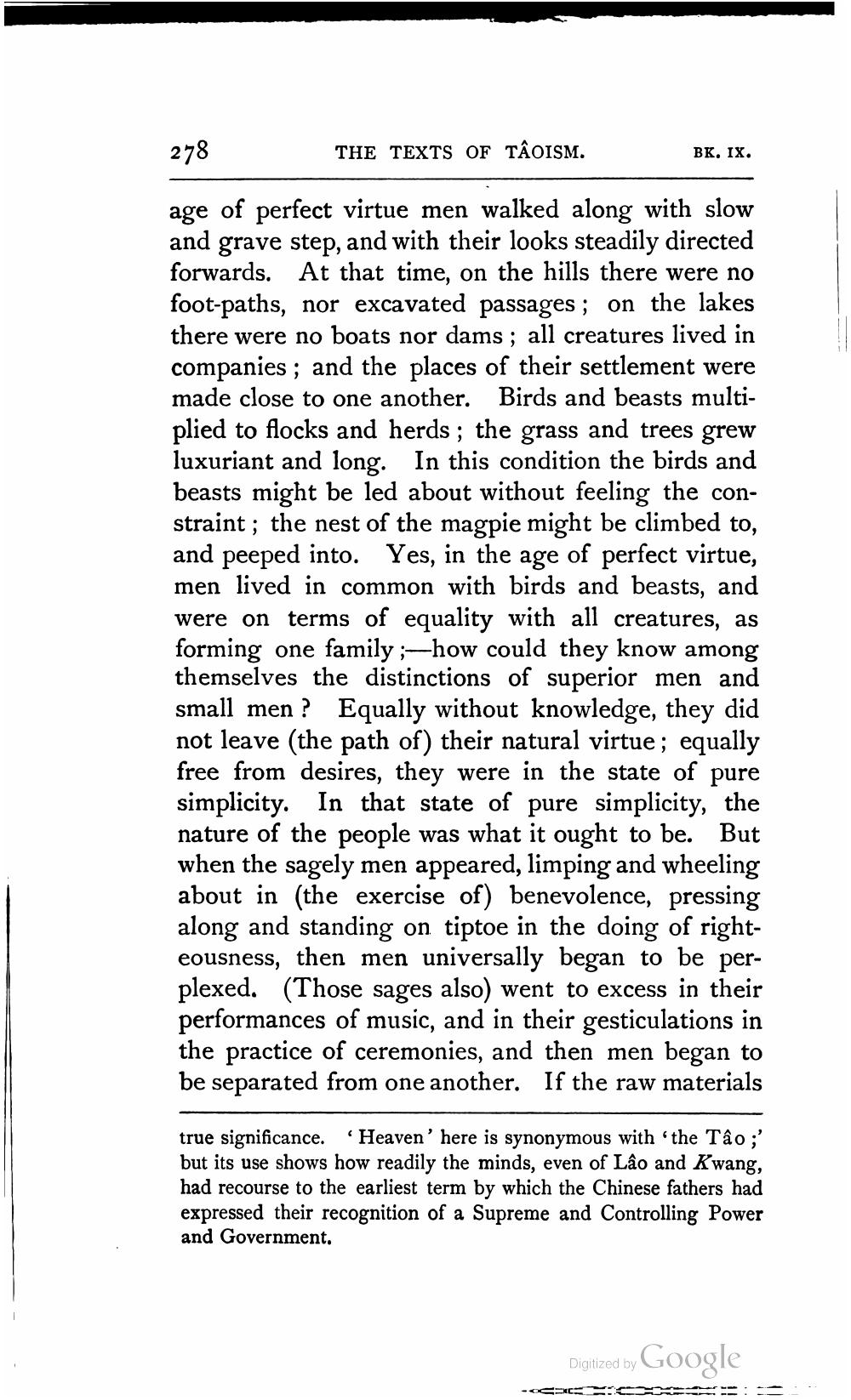________________
T
278
THE TEXTS OF TAOISM.
age of perfect virtue men walked along with slow and grave step, and with their looks steadily directed forwards. At that time, on the hills there were no foot-paths, nor excavated passages; on the lakes there were no boats nor dams; all creatures lived in companies; and the places of their settlement were made close to one another. Birds and beasts multiplied to flocks and herds; the grass and trees grew luxuriant and long. In this condition the birds and beasts might be led about without feeling the constraint; the nest of the magpie might be climbed to, and peeped into. Yes, in the age of perfect virtue, men lived in common with birds and beasts, and were on terms of equality with all creatures, as forming one family;-how could they know among themselves the distinctions of superior men and small men? Equally without knowledge, they did not leave (the path of) their natural virtue; equally free from desires, they were in the state of pure simplicity. In that state of pure simplicity, the nature of the people was what it ought to be. But when the sagely men appeared, limping and wheeling about in (the exercise of) benevolence, pressing along and standing on tiptoe in the doing of righteousness, then men universally began to be perplexed. (Those sages also) went to excess in their performances of music, and in their gesticulations in the practice of ceremonies, and then men began to be separated from one another. If the raw materials
true significance. Heaven' here is synonymous with 'the Tâo;' but its use shows how readily the minds, even of Lâo and Kwang, had recourse to the earliest term by which the Chinese fathers had expressed their recognition of a Supreme and Controlling Power and Government.
<x
BK. IX.
Digitized by
Google




